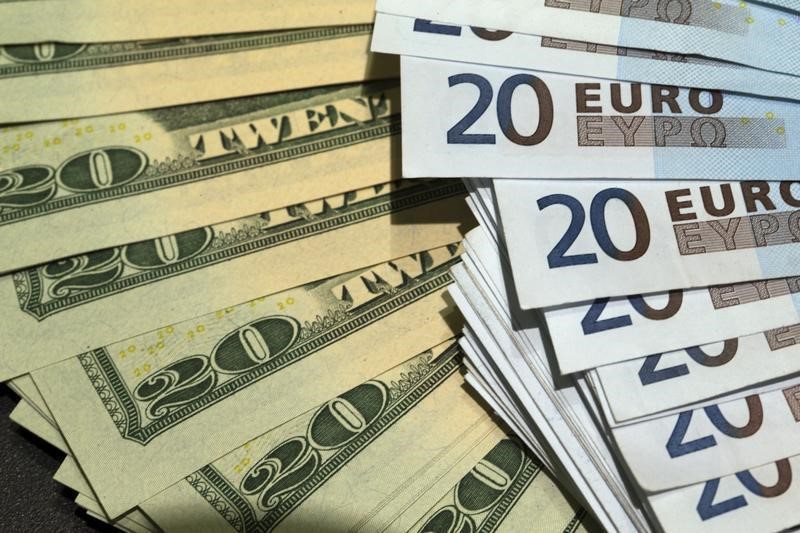Investing.com - The euro dropped over 1% against the U.S. dollar on Friday, as strong U.S. employment data sent the greenback broadly higher, while ongoing concerns over Greece's future in the euro zone continued to weigh on the single currency.
EUR/USD hit 1.1336 during U.S. morning trade, the session low; the pair subsequently consolidated at 1.1331, tumbling 1.28%
The pair was likely to find support at 1.1260, the low of January 29 and resistance at 1.1499, Thursday's high.
The dollar strengthened broadly after the Labor Department said the U.S. economy added 257,000 jobs in January, beating expectations for an increase of 234,000. December's figure was revised to a 329,000 gain from a previously estimated 252,000 rise.
The report also showed that the U.S. unemployment rate ticked up to 5.7% last month, from 5.6% in December. Analysts had expected the unemployment rate to remain unchanged in January.
In addition, data showed that U.S. average hourly earnings rose 0.5% in January, exceeding expectations for a 0.3% gain, after a 0.2% fall the previous month.
Meanwhile, the euro remainder under pressure amid sustained Greece concerns, even as German Finance Minister Wolfgang Schauble said on Thursday that Greece's financial difficulties were the result of domestic problems, but that Germany would do all in its power to help.
Schauble was speaking at a joint press conference with his Greek counterpart Yanis Varoufakis in Berlin on Thursday.
The comments came after the European Central Bank said it would no longer accept Greek bonds as collateral for lending, shifting the burden on to Greece’s central bank to provide additional liquidity for its lenders and increasing pressure on Athens.
Greece’s government is seeking debt relief on its current €240 billion bailout, which has fuelled fears over a clash with its creditors that could bring about its eventual exit from the euro zone.
Earlier Friday, official data showed that German industrial production rose 0.1% in December, disappointing expectations for a 0.4% gain. November's figure was revised to a 0.1% uptick from a previously estimated 0.1% fall.
The euro was also lower against the pound, with EUR/GBP declining 0.85% to 0.7424.
